
PROTOPLASMA
metrics 2024
Elevating Scientific Discourse in Cell and Plant Research
Introduction
PROTOPLASMA is a prestigious academic journal published by Springer Wien, dedicated to advancing knowledge in the fields of Cell Biology, Plant Science, and related areas of Medicine. Established in 1926 and continuing through 2024, this journal boasts a rich history of scholarly contributions and is currently indexed with a notable ranking in various disciplines: it stands in the top quartile (Q1) in Plant Science, the second quartile (Q2) in miscellaneous Medicine, and the third quartile (Q3) in Cell Biology as of 2023. With robust Scopus rankings placing it in the 86th percentile in Plant Science and a solid position in Cell Biology, PROTOPLASMA is recognized for its commitment to high-quality research and innovative findings. Although the journal does not offer open access options, it remains a valuable resource for researchers, professionals, and students seeking to explore the cellular and molecular underpinnings of plant life and its implications in broader biological contexts. Based in Austria, PROTOPLASMA serves as a vital forum for disseminating pioneering research that shapes the future of scientific inquiry in its respective fields.
Metrics 2024
 0.69
0.69 2.50
2.50 3.10
3.10 89
89Metrics History
Rank 2024
Scopus
IF (Web Of Science)
JCI (Web Of Science)
Quartile History
Similar Journals
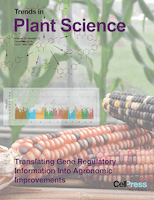
TRENDS IN PLANT SCIENCE
Illuminating Emerging Trends in Plant SciencesTRENDS IN PLANT SCIENCE is a premier academic journal published by CELL PRESS, dedicated to advancing the field of plant sciences. With an ISSN of 1360-1385 and E-ISSN 1878-4372, this journal has established itself as a critical resource for researchers and practitioners alike, boasting a remarkable impact factor that places it in the Q1 quartile for plant science in the 2023 rankings. Featuring a comprehensive scope that encompasses emerging trends, innovative research, and pivotal reviews in the plant sciences, it aims to promote interdisciplinary dialogue and encourage progressive research methodologies. Hailing from the United Kingdom, TRENDS IN PLANT SCIENCE serves a global community of over 516 journals, achieving a top-tier ranking of 3rd in the Scopus ranking for Agricultural and Biological Sciences. This makes the journal an indispensable asset for anyone aiming to keep abreast of the latest developments in plant biology and its applications. As we look towards its future converging years from 1996 to 2024, the journal continues to foster scholarly excellence and innovation in the field.

JOURNAL OF PLANT RESEARCH
Advancing Sustainable Practices Through Plant Research.JOURNAL OF PLANT RESEARCH, published by SPRINGER JAPAN KK, is a leading academic journal that has carved a niche in the field of Plant Science. With its ISSN 0918-9440 and E-ISSN 1618-0860, this journal has been disseminating high-quality research since its inception in 1993 and continues to be essential reading for academics and practitioners alike, aiming to bridge the gap between innovative plant research and practical applications. The journal is highly regarded, holding a prestigious Q1 ranking in Plant Science for 2023, and is positioned in the top 80th percentile within the Scopus rankings for Agricultural and Biological Sciences. The journal's coverage includes a wealth of topics pertinent to advancing our understanding of plant biology, ecology, and sustainable agricultural practices. Although it operates under a subscription model, its influence in the research community remains profound, making it a vital resource for contemporary studies in plant-related disciplines.
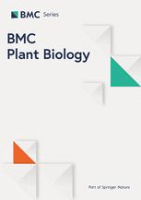
BMC PLANT BIOLOGY
Nurturing Innovation in Plant ResearchBMC Plant Biology, published by BMC, is a leading open-access journal devoted to the field of plant science, presenting high-quality research that contributes significantly to the understanding of plant biology. Since its inception in 2001, the journal has established itself as a prominent platform for disseminating innovative research, achieving a commendable Q1 ranking in Plant Science within the 2023 Scopus quartiles, and ranking #39 out of 516 journals in the Agricultural and Biological Sciences category, indicating its substantial impact with a 92nd percentile ranking. Researchers, professionals, and students engaged in the study of plant biology will find a wealth of knowledge in its comprehensive scope, covering critical areas such as molecular biology, genetics, ecology, and biotechnology. The journal's commitment to open access ensures that cutting-edge research is available to a global audience, fostering collaboration and advancement in the field. BMC Plant Biology continues to inspire and facilitate growth in plant-related studies, making it an invaluable resource for anyone interested in the vibrant and essential domain of plant science.

JOURNAL OF PLANT BIOLOGY
Unveiling Nature's Secrets, One Plant at a TimeJOURNAL OF PLANT BIOLOGY, published by SPRINGER HEIDELBERG, is a leading academic journal dedicated to advancing the field of plant science. With an impressive impact factor signifying its high citation rate and rigorous peer-review process, this journal ranks in the Q1 category within Plant Science, placing it among the top-tier periodicals in the discipline. Established in 1999, it has become an essential resource for researchers, professionals, and students seeking the latest findings and developments in plant biology. The journal fosters a collaborative environment for sharing innovative research, exploring ecological interactions, and understanding plant physiology, thereby contributing significantly to advancements in sustainable agriculture and environmental conservation. Its high Scopus ranking of 102 out of 516 in the category of Agricultural and Biological Sciences further underscores its relevance and impact within the scientific community. For those interested in cutting-edge research, JOURNAL OF PLANT BIOLOGY is a vital source of knowledge, offering insights that are crucial for the future of plant science.
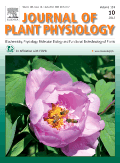
JOURNAL OF PLANT PHYSIOLOGY
Elevating Understanding of Crop ScienceJOURNAL OF PLANT PHYSIOLOGY, published by ELSEVIER GMBH, stands as a leading international journal dedicated to the field of plant physiology, agronomy, and crop science. With an impressive impact factor and recognition within the Q1 and Q2 quartiles across various categories, this journal consistently ranks among the top in its field—positioned at #65/516 in Plant Science and #52/406 in Agronomy and Crop Science as of 2023. Located in Munich, Germany, it serves as a vital platform for researchers, practitioners, and students to share groundbreaking insights and advancements. Although it does not currently offer open access, the journal provides an essential repository of knowledge, publishing significant original research, reviews, and discussions on plant function, regulation, and development, thereby shaping the future of agricultural practices and contributing to our understanding of biophysical processes. Researchers looking to publish in a reputable venue or to access cutting-edge studies will find JOURNAL OF PLANT PHYSIOLOGY an invaluable resource.

Nature Plants
Fostering Innovation in Agriculture and EcologyNature Plants is a premier journal dedicated to the dynamic and interdisciplinary field of plant science, published by NATURE PORTFOLIO in the United Kingdom. With an impressive impact factor placing it in the top tier of scholarly journals—ranking Q1 in Plant Science for 2023—this journal sets a high standard for research dissemination. Nature Plants has maintained a remarkable Scopus Rank of 5 out of 516 in the Agricultural and Biological Sciences category, reflecting its pivotal role in advancing knowledge in the field. The journal aims to provide a platform for groundbreaking research that addresses key challenges in plant biology, ecology, and agriculture, thereby fostering a deeper understanding of plant science's contribution to global sustainability. Although primarily non-open access, it offers exclusive insights and robust discussions, making it an indispensable resource for researchers, professionals, and students eager to explore the latest advancements and innovations in plant science.

aBIOTECH
Transforming ideas into groundbreaking solutions in life sciences.aBIOTECH, published by SPRINGERNATURE, is a premier academic journal dedicated to advancing the fields of biotechnology, agronomy, and molecular biology. With an impressive ISSN of 2096-6326 and E-ISSN 2662-1738, this journal has established itself as a vital resource for researchers and professionals aiming to publish high-quality, impactful studies. Based in Singapore, aBIOTECH has achieved remarkable recognition, boasting a Q1 ranking in multiple categories including Agronomy and Crop Science, Biochemistry, and Genetics in the 2023 Scopus rankings. Its solid position in the 90th percentile for Biochemistry and Genetics reinforces its significance within the global scientific community. The journal covers a broad spectrum of topics relevant to both basic and applied research, facilitating a shared dialogue amongst scientists and encouraging collaborative progress in innovative biotechnological applications. The open-access nature of the journal ensures that cutting-edge research is freely available, fostering a global exchange of ideas that is critical to the advancement of science today.
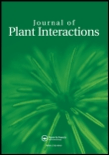
Journal of Plant Interactions
Advancing the Science of Plant InteractionsThe Journal of Plant Interactions, published by Taylor & Francis Ltd in the United Kingdom, serves as a leading open-access platform dedicated to advancing the understanding of plant interactions and their ecological implications. Established in 2005 and transitioning to open access in 2015, this journal focuses on both fundamental and applied aspects of plant interactions, providing invaluable insights for researchers, professionals, and students within the fields of Ecology and Plant Science. With a commendable impact factor and ranked in the second quartile (Q2) for both Ecology, Evolution, Behavior and Systematics and Plant Science, it reflects the quality and relevance of its published research. Researchers aiming to publish innovative studies on plant behavior and ecosystem dynamics will find a welcoming avenue for their work, as the journal is dedicated to fostering open dialogue and sharing knowledge across disciplines.
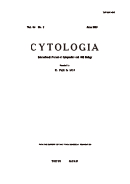
CYTOLOGIA
Exploring the Depths of Cytological ScienceCYTOLOGIA is a prominent academic journal published by University of Tokyo Cytologia, specializing in the fields of Animal Science, Plant Science, Cell Biology, and Genetics. With origins dating back to 1929, this journal has been at the forefront of cytological research and continues to contribute to advancements in both basic and applied sciences. As of 2023, it holds a respectable position in various Scopus categories, with a Q3 ranking in Animal Science and Zoology and Plant Science, alongside Q4 rankings in Genetics and Cell Biology, reflecting its dedication to quality research dissemination. While currently not an Open Access journal, CYTOLOGIA provides critical insights and findings that are pivotal for researchers, professionals, and students aiming to further their understanding of cytology and its applications in diverse biological fields. With a historical legacy and ongoing relevance, CYTOLOGIA remains a vital resource for anyone engaged in cutting-edge research or seeking comprehensive knowledge in the biological sciences.
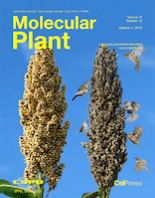
Molecular Plant
Exploring the frontiers of molecular biology in plants.Molecular Plant, published by CELL PRESS, is a premier journal dedicated to advancing the field of molecular biology and plant science. With an impressive impact factor reflecting its rigorous peer-review process and the high quality of its published research, this journal has achieved a remarkable Q1 ranking in both Molecular Biology and Plant Science categories as of 2023. Its Scopus rankings place it within the top echelons of its field, holding 2nd place in Agricultural and Biological Sciences - Plant Science, showcasing its vital role in disseminating impactful research. The journal covers a broad range of topics, including but not limited to, plant genetics, molecular interactions, and biotechnological advances. Research published in Molecular Plant has the potential to significantly influence agricultural practices and biotechnological applications, making it an essential resource for researchers, professionals, and students eager to stay at the forefront of plant research. Access options for the journal are tailored to accommodate a wide audience, facilitating engagement with cutting-edge findings and breakthroughs. As the field of plant science continues to evolve, Molecular Plant remains integral to fostering innovation and collaboration within the scientific community.